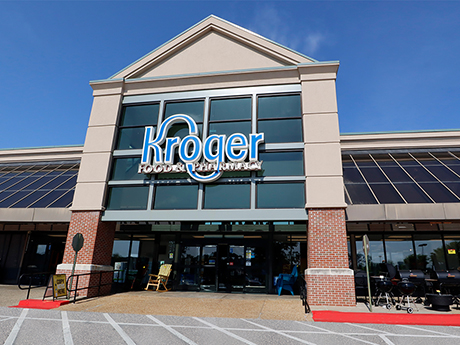Washington, D.C. — The Federal Trade Commission (FTC), a U.S. government entity that enforces consumer protection laws, has sued to block Kroger Co.’s (NYSE: KR) proposed $24.6 billion acquisition of Alberstons Cos. (NYSE: ACI). Announced in late 2022, the deal would mark the largest supermarket merger in U.S. history.
Kroger’s current portfolio includes thousands of stores across 36 states, including stores that operate under the regional banners Fred Meyer, Fry’s, Harris Teeter, King Soopers and Quality Food Centers (QFC), in addition to its Kroger flagship. Albertsons likewise operates thousands of stores across 35 states under names including Haggen, Jewel-Osco, Pavilions, Safeway and Vons, in addition to the eponymous Alberstons shops.
According to the FTC, the merger — which, if completed, would result in a portfolio of more than 5,000 stores and roughly 4,000 retail pharmacies — is “anticompetitive.” Executives for both supermarket chains have conceded that Kroger’s acquisition of Albertsons is anticompetitive, with one saying the merger is “basically creating a monopoly,” reports the FTC.
The FTC is also alleging that the deal would “lead to lower quality products and services” and threaten “the ability of employees to secure higher wagers, better benefits and improved working conditions,” according to a press release issued by the commission.
“This supermarket mega-merger comes as American consumers have seen the cost of groceries rise steadily over the past few years. Kroger’s acquisition of Albertsons would lead to additional grocery price hikes for everyday goods, further exacerbating the financial strain consumers across the country face today,” says Henry Liu, director of the FTC’s Bureau of Competition. “Essential grocery store workers would also suffer under this deal, facing the threat of their wages dwindling, benefits diminishing and their working conditions deteriorating.”
The FTC issued an administrative complaint and authorized a lawsuit in federal court to block the proposed acquisition pending the commission’s administrative proceedings. A bipartisan group of nine attorneys general is joining the FTC’s federal court complaint.
The complaint alleges that Kroger and Albertsons’s inadequate divestiture proposal, which was announced this past fall, is a hodgepodge of unconnected stores, banners, brands and other assets that Kroger’s antitrust lawyers have cobbled together and falls far short of mitigating the lost competition between Kroger and Albertsons.
The FTC’s vote to issue the administrative complaint and authorize staff to seek a temporary restraining order and preliminary injunction in federal district court was 3-0. The federal court complaint and request for preliminary relief will be filed jointly with the state attorneys general in the U.S. District Court for the District of Oregon.
Kroger issued its own statement in the wake of the lawsuit, alleging that the move by the FTC will prove harmful to both customers and workers.
“The FTC’s decision makes it more likely that America’s consumers will see higher food prices and fewer grocery stores at a time when communities across the country are already facing high inflation and food deserts. In fact, this decision only strengthens larger, non-unionized retailers like Walmart, Costco and Amazon by allowing them to further increase their overwhelming and growing dominance of the grocery industry,” reads the prepared statement by Kroger Co. “The merging parties look forward to litigating this action in court so we can deliver the benefits of this merger to communities across America — lower prices, more choices and more good-paying union jobs for decades to come.”


